What an executive MBA did for me
Roula Khalaf, Editor of the FT, selects her favourite stories in this weekly newsletter.
Ryan Tan
Singaporean. UCLA Anderson and National University of Singapore (joint EMBA), 2019. Chief operating officer, D’Crypt, Singapore
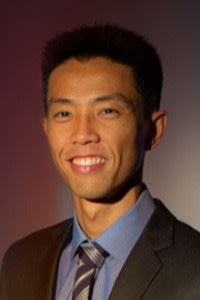
How has the EMBA changed your professional life?
First, the global nature of my course across two institutions in Asia and the US gave me a global network. This can shorten your learning curve on particular industries — for example, healthcare, or specialist topics such as accounting. My classmate chief financial officers and other “C-levels” are just a call away.
Second, the EMBA gives you a larger perspective on business. As a senior manager, you may not need to understand every detail of how a marketing campaign works, for example, but you do need to know enough to ask the right questions to ensure alignment with larger organisational goals. The theoretical and practical experience gained in my programme helps me in this regard.
Third, companies look at the EMBA as a credential and signal of quality. But more than that, if I see someone has successfully completed an EMBA, I know they are disciplined and purposeful in addition to the global network that they have gained.
Pablo Percelsi
Swiss/Italian. IMD, 2019. Head of delegation of the International Committee of the Red Cross, Dhaka, Bangladesh
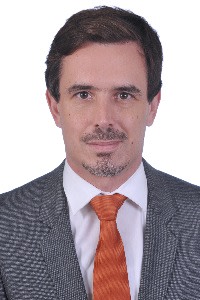
What survival tips do you have for studying the EMBA?
When I started the programme I was in Geneva, then I moved to Beirut where I was deputy head of delegation, which required a lot of engagement. Add to that the 20-25 hours a week you have to dedicate to the EMBA and it was intense. You have to be extremely disciplined and motivated because it is a marathon.
Follow a tight schedule and make sure you finish a task before moving on. I broke down all my tasks into Excel tables so I could see what was coming next and kept myself motivated by imagining what I would do with the new skills. Also, use your network and peers.
There are moments where you feel exhausted and think, “I am a professional and I am already OK with my career — why should I continue?” You cannot do it alone. You need people around you to help and share your burden. Luckily, I have a very patient wife who supported me.
Gentry Brann
American. Duke University’s Fuqua School of Business, 2018. Senior vice-president of people, culture and communications, McDermott International, Houston, Texas
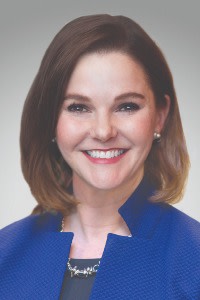
Why did you choose to study the EMBA?
I started the EMBA in my late forties with 25 years of experience in marketing — 11 of those in engineering and construction. The EMBA was not something I planned to do, but I realised that my ability to bring value to my company — and my prospects, as a result — would be limited without the broader knowledge and perspective an EMBA provides.
While I have worked in my industry long enough to understand the nuances of what we do better than most, I felt I lacked the business training and financial acumen to provide solutions to our most challenging issues. However, I couldn’t see myself in a traditional MBA programme at my age. The EMBA at Duke offered a cohort with experience, wisdom and a great sense of humour. I think EMBA students take ourselves less seriously, and collaborate more as a result.
Anna Musiej Aanensen
Norwegian. BI Norwegian Business School, 2015. Head of finance, VesselAdmin, Oslo, Norway
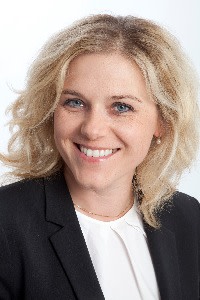
What is the most important lesson you learnt on the course?
I realised that there are always different perspectives and solutions: probably the most common words I heard on the course were “it depends”. There can be different ways of getting to where you want to be, so you just have to try: you have to believe in your idea, follow it and sell it to others to get them on board.
On the EMBA, I focused on lean execution. This concept is about learning by doing, getting out there, trying your ideas and being more comfortable with challenging yourself and others. You can sit and analyse for as long as you want, but eventually you have to implement your idea — and sometimes you have to do this early. This is what I became better at in my private and professional life, especially now that I work in a start-up. No one will do the job for you: if you have an idea, go to the market and try it. Talk to clients, and build your product and value proposition together with them.
Swati Mukherjee
Indian. Indian School of Business, 2021. Service product manager, Nokia, India
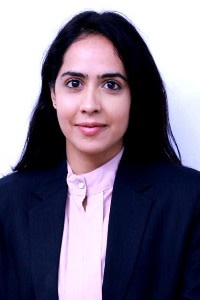
Did anything surprise you about the EMBA?
The personal development surprised me about the course: it not only moulds you into a business leader but also develops you to take on the world and be prepared for any challenges thrown your way. Every course had an important business lesson. However, I also learnt time management. We are put in pressure cookers that are about to explode: we are taught how to deal with pressure and still take decisions, understand what is happening and come out with a practical and conceptual solution we can justify.
I learnt team management and to be a team player. Sometimes you are supposed to lead and sometimes you are part of the team. Knowing how to manage those two roles — and when to step down and step up — is useful. And, most importantly, we learnt about effective communication. We take it for granted sometimes that a person has understood what we want to say, but we do not actually communicate very well.
Comments